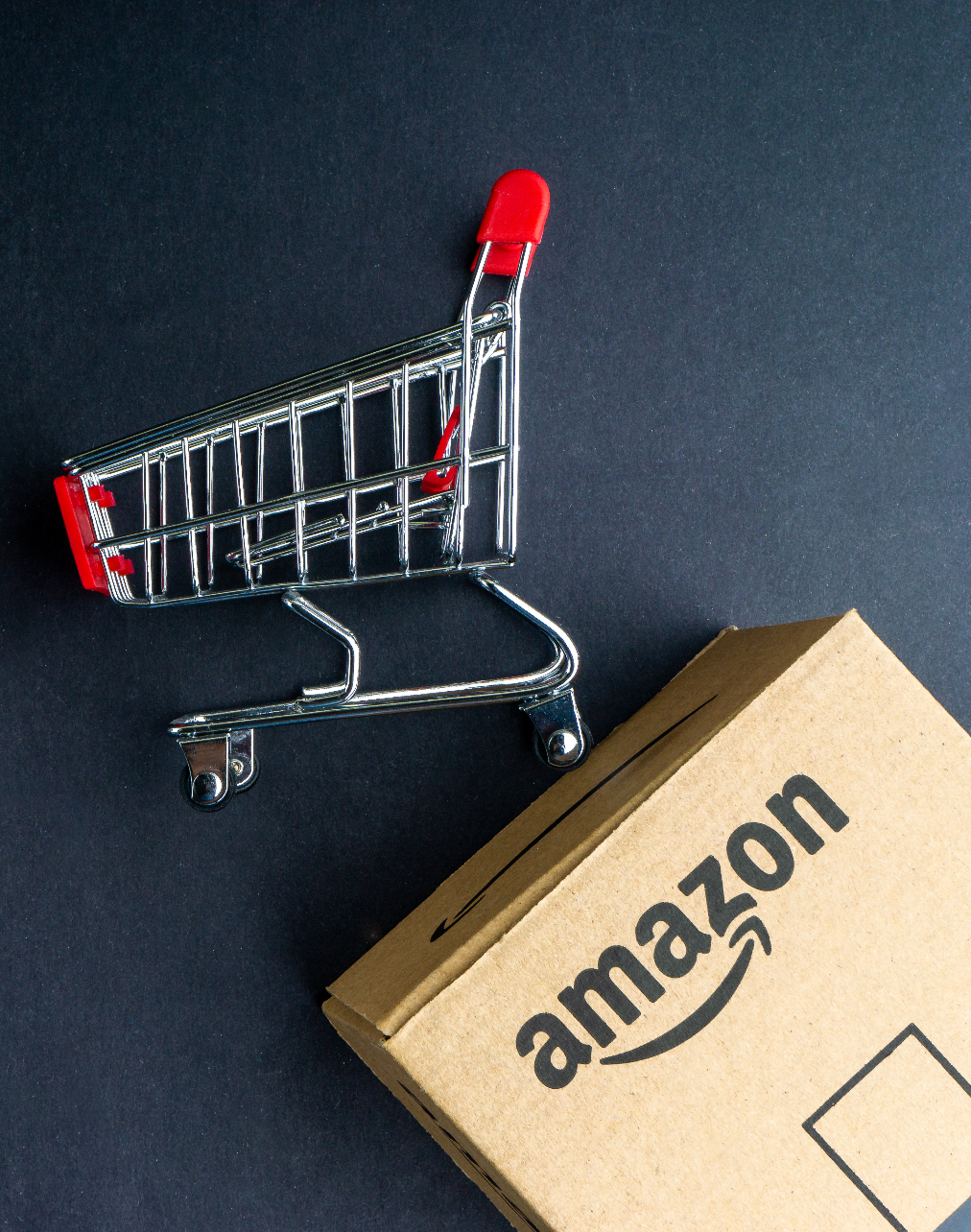Seated in the grandstands of the bloody coliseum known as Big Tech, we watch as the world’s biggest companies carve lumps out of one another for global dominance and the relevance of an adage like “only the paranoid survive” becomes strikingly clear. First articulated by Intel’s CEO Andrew Grove in 1996, this adage has stood as a guiding principle for big tech over the past three decades, illuminating the unforgiving landscape where vigilance reigns supreme.
In last week’s showing of big tech vigilance, we once again saw the formidable challenger TikTok advancing with their guard up against Amazon in a pursuit to topple them as the e-commerce incumbent. A new report from The Information suggests that TikTok will throw the kitchen sink at e-commerce from a funding perspective, adding $500m losses to their P&L in pursuit of dominance whilst most notably, introducing a policy to ban links from their platform to outside e-commerce sites – including Amazon.
Amazon had TikTok paranoia back in 2020 when they aimed to ban the social app on employee devices, and perhaps that paranoia was well placed.
While TikTok denies what is claimed in the report, evidence has been mounting over the past three years that TikTok, piloted by the Eastern e-commerce powerhouse Bytedance, is coming for Amazon’s lunch. After forming a partnership with Shopify and WooCommerce; introducing affiliates; conducting a sustained period of experimentation with Live Commerce; launching shopping ads, opening TikTok-owned fulfilment centres; rolling out product search ads and a Shopping feed, then finally releasing their in-app Shop for all brands and creators; TikTok have been gaining serious ground. Bezos can only watch through the gaps in his fingers.
This latest development, if true and unleashed at the right time, would cause serious disruption in the e-commerce space. And what would a big tech battle be without a vein of irony?
The Financial Times recently reported that TikTok is rolling out an in-app product promotion called Trendy Beat. This shopping feature will showcase TikTok-owned products that have been manufactured based on in-app data. If the product is popular, TikTok will copy it, probably for cheaper, then sell it directly to customers. These are the exact fundamentals of Amazon’s growth strategy, and you can bet dollars for donuts that TikTok will in the not-so-distant future be accused of copying viral products, then prioritising their own white label products in favour of the original brand’s product. Just like Amazon has been accused of.
This is the specific tension which should terrify brands.
After brands have invested years into a platform that has helped them gain strong organic and paid returns, all whilst positioning them authentically towards Gen Z culture in a meaningful way, and beckoning in an era of shopping and social that is more tightly woven than ever before, we will now see that same platform use the data from yours and millions of other brand’s investment to cut themselves off a much bigger slice at your expense. This is whilst limiting your ability to drive clicks towards your favoured storefront. We should have seen this coming when the platform birthed dupe culture.
TikTok is now in a race against itself to drive mass adoption of their shop offering. Clearly they believe they have the cultural clout to own the shopping process outright from awareness to conversion.
Of course, Amazon logistically is an absolute beast, with over 185 fulfilment centres globally, 9.7m registered sellers, and most importantly, the ability to ship with next day delivery to their 300m customers worldwide. But with TikTok owning their own fulfilment centres, could they be inching closer to offering a next day delivery service of their own?
With TikTok expected to reach 1.8bn users by the end of the year, all of which average 95 minutes’ usage per week, as well as the fact the platform is hugely responsible for the creation of virality around products right now, they’ve become an irresistible prospect – or a frightening one – depending on whether you are a customer, or if you are Jeff Bezos.

There are aspects of the app which also need to align to ensure TikTok can make a dent in Amazon. Of course, their FYP algorithm is well suited to deliver you relevant products with scary accuracy, meaning organic awareness nested with surprise and delight is a great emotion to tap into when trying to drive shopping behaviour. The affiliate payouts are reportedly not bad, considering one creator netted 20% commission on a sale, where Amazon reportedly ranges from 1-20%. But search is a huge reason why Amazon is so convenient. They seemingly sell everything and make discovery completely frictionless – with reviews playing a huge part in that journey – meaning that more often than not, your research within the app drives you down-funnel tidily towards purchase.
TikTok does not yet boast the power of Amazon’s search engine, nor does it boast the decades of data – including reviews – that Amazon has. When users do search on TikTok, the power of the creator content that exists there is arguably the most powerful discovery content that can possibly be leveraged. Therefore, if TikTok can truly nail search, offer next day delivery, and drive mass seller adoption, you would start to seriously consider the app as a destination for shopping as a consumer.
If you think Amazon’s paranoia should reside solely in the realm of e-commerce, then you would be wrong. Amazon has recognised that to keep consumers within your ecosystem, you need to add an insane amount of value, which is why their Prime subscription houses so many products to make it a no brainer for consumers. Whilst Amazon does not break down the profitability of each of its business segments, half of its Prime revenue is spent on maintaining their streaming on-demand platform Prime Video, with total expenses across Prime Video and Prime Music coming in at $16.6 billion in 2022 against revenues of $35.22bn. That’s before you even consider the logistical cost of delivering their bread and butter at a next day turnaround. Package this up with Prime Gaming, Amazon Day, Amazon Photos, Whole Foods discounts, Twitch subs, and Prime Reading, and you’re talking a lot of added value to make sure consumers keep shopping with you.
How will TikTok compete on those grounds? Well, the platform has been expanding its offerings in many of those areas to varying degrees of scale. It recently launched TikTok Music in select countries, a music streaming platform which clearly will be favoured by Gen Z listeners who are able to support their favourite artists via merchandise, music, and exposure – all within one app. They launched Series, which allows creators to pay-gate premium content: not a stretch on the value offered by Prime Video, but the first step on a long, steep path. TikTok has its own coin donation economy, similar to Twitch’s subs and bits, which allows users to support their favourite creators. Furthermore, TikTok is venturing into mobile gaming, live sports streaming with the NFL and X Games, and even launching a publisher model for creators called 8th Note Press.
@tiktoknewsroom Introducing TikTok Series 🥁 Our new premium feature enables creators to post Collections of up to 80 videos, each up to 20 minutes long 🙌
♬ original sound – TikTok Newsroom
With these developments, whilst Elon Musk talks up a good game about making X the everything app, it seems that TikTok is actively building it for both creators and consumers. By offering a similarly eclectic range of services, including music streaming, gaming, content creation tools, and e-commerce, TikTok is positioning itself as a one-stop platform for entertainment and shopping, locking horns with Amazon on more than on ground. Once they reach a product viability level with the right levels of adoption across each of their business divisions, a TikTok subscription to give you all of this value included with free next day delivery would really put the cat among the pigeons.
How can Amazon respond?
They could make their Shopping platform more social, like Google is doing. Launching Shorts and nesting vertical creator-led content in searches is clearly driven by the adage “only the paranoid survive” in mind. I’m sure Amazon can try to look to Congress and anti-competition for a helping hand. But as they fight anti-competition battles of their own, I’m not sure how much favour they will curry, beyond faux patriotism and anti-China agendas. It seems the plucky challenger has a lot going for it, and clearly, a lack of other challengers with the same strategy. If you zoom out from the battle taking place in the centre of the coliseum between Amazon and TikTok, you can see Meta in the periphery, acquiring VR headset companies ahead of Apple to ensure their metaverse move is bulletproof, whilst copying Twitter wholesale and aiming to improve the things that X users are complaining about on their app via the launch of Threads. Meta have winded down their ecommerce plays in favour of these battles, and you wonder whether they may regret that in coming years.






